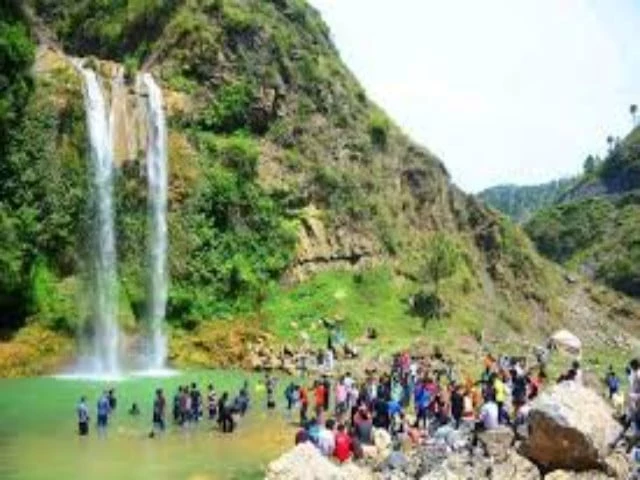Islamabad:
The work began at the Hazara waterfalls in Jab Valley, Haripur, as part of an ecotourism initiative funded by the United Kingdom which aims to transform this natural gem hidden into a major tourist attraction for Khyber-Pakhtunkhwa. The project also seeks to connect the waterfalls with the historic stupa of Bhamala, creating a new cultural and ecotourism route near Islamabad.
Supported by the British Office, Commonwealth & Development Office (FCDO) through WWF-Pakistan’s Water Resource Accountability Project (WIB), the first phase was launched with 5 million financing rupees. It includes the construction of a safe walking track and a small tourist hut, replacing the dangerous local path currently used by the villagers to transport firewood. The path should be completed by mid-October 2025.
The Hazara stunts have eight major waterfalls, the highest increase of almost 400 feet, making it the largest Khyber Pakhtunkhwa cascade system. Located just two hours from Islamabad, the site offers both accessibility and natural size. Falls feed on the Haro river, which crosses Bhamala before reaching the Khanpur dam. Only 27 km from the dam, the valley can easily be integrated into a wider tourist circuit which combines natural beauty with heritage tourism.
Discovered in 2021 by Hassan Nisar, founder and CEO of Metrix Pakistan, the waterfalls are now practiced for wider recognition. “This investment is a breakthrough that will transform Jab Valley into the next major tourist destination in Pakistan,” said Nisar. He said that the project would generate jobs for young locals, would create opportunities for merchants, guides and drivers and would reduce the cutting of firewood by encouraging conservation.
The Tourism Department KP welcomed the initiative, saying that it will not only add new attractions for visitors, but will also protect the fragile environment of Jab Valley.
Tourism experts believe that Jab Valley could become an attractive alternative to overcrowded destinations such as Naran, Kaghan and Swat. With good planning, they argue that they could soon be among the first hot spots of Pakistan ecotourism.
WWF-Pakistan stressed that environmental preservation remains at the heart of the project, adding that its success could serve as a model to develop other natural hidden treasures through the province.
With the work in progress and the first installations that will open in the coming weeks, Jab Valley is on the right track to emerge as a unique mixture of nature and history – where the biggest waterfalls in Pakistan meet the secular heritage.




